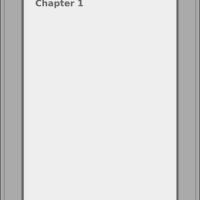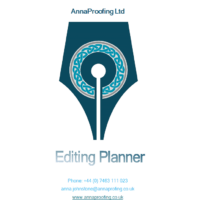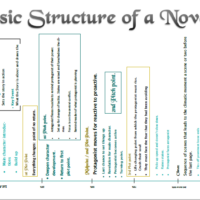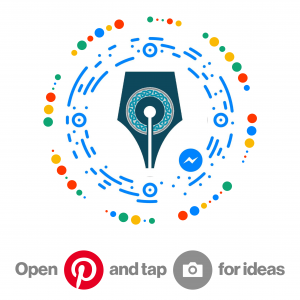
by Anna Johnstone | Jan 22, 2019 | Blog
Good morning!
Welcome to another Tuesday round-up. This week we have another great podcast from The Creative Penn (okay, total fangirl) discussing running a one-person business, the Kobo Writing Life talks about podcasting as content marketing., and the Writership podcast discusses scene and story resolutions. In articles, we have two very informative articles on shrinking author incomes, and another on corporate censorship and their unchecked power. I’ve not had time to check out videos for this week’s round-up, but hopefully, I’ll be able to gather a few links for next week.
Happy reading!
The Disastrous Decline in Author Incomes Isn’t Just Amazon’s Fault
The bookselling behemoth is making life harder for writers, but so is the public perception that art doesn’t need to be paid for.
Publisher's Weekly | Breaking Down Financial Woes for Writers
In an effort to gather as much information as possible about how much authors earned in 2017, the Authors Guild conducted its largest income survey ever last summer, reaching beyond the guild’s own members to include 14 other writing and publishing organizations. In all, the survey drew 5,067 responses from authors published by traditional publishers and from hybrid and self-published authors as well.
Corporate Censorship Is a Serious, and Mostly Invisible, Threat to Publishing
When state or civil authorities blacklist books, the act is correctly labeled censorship. But what is the word when corporations order their subsidiaries to snuff out information?
The Creative Penn | How To Be A Successful Company Of One With Paul Jarvis
What if you could scale your revenue without growing your expenses? What if you could make a living with your writing but still remain alone in your writing room? I discuss these questions and more today with Paul Jarvis.
In the intro, I talk about second-hand book sales [Dean Wesley Smith], how the death of poet Mary Oliver can help deepen our writing [listen to her on the On Being Podcast], why ‘sparking joy‘ is so important (referencing Marie Kondo on Netflix), plus the Kickstarter for Intellectual Property Tracking.
Kobo Writing Life | Ep 133 – Let’s Talk Podcasting with Amanda Cupido
n this week’s episode, Cristina sits down with author and podcast producer Amanda Cupido to talk about her book Let’s Talk Podcasting: The Essential Guide to Doing it Right. Amanda talks about how she got into podcasts, the difference between podcasts and older media such as radio, and she discusses the underrepresented voices in the podcasting community. Amanda also shares her tips for starting your own podcast and the most common roadblock that aspiring podcasters encounter.
Writership Podcast | Ep. 136: Resolutions
We all have some idea of what a resolution is, but what are these scene and story-enders meant to do? In this episode, I explore scene and story resolutions in the context of C. Gabriel Wright’s LBGTQ love story, “Someone.” The editorial mission encourages you to collect resolutions by reading and watching stories—and from your own life.
by Anna Johnstone | Sep 25, 2017 | Advice, Service
A lot is said about how to find the right editor for you but today’s post is about being a good client. I had not intended for this to be this week’s post but given the circumstances, I thought this needed to be said.
Most of us know by now that the business relationship runs both ways. It should be one of mutual benefit and courtesy. Most of you know you need to be polite to editors when introducing your work, and they know to be tactful and treat your work with respect and discretion. Most of you know that most editors are very busy and cannot simply drop everything to make your work an immediate priority, but we still try to be polite when dealing with even the most ‘urgent’ projects. However, there are times when we meet those who don’t know these things, and today was one of them. I would like to draw from my own experience for an example of how not to introduce yourself to an editor. I will not name names. Doing so would be unprofessional and serve no purpose other than to exacerbate the problem, However, I do not feel that ignoring this experience will do any good either. For the moment there are two things authors need to remember;
- Good customer service does not mean being a doormat and accepting poor treatment just to get the client. Good customer service requires effort on behalf of the client too.
- Editors talk… A lot… About everything…
A few days ago I received an unsolicited ‘friend’ request from a member of one of the many writer’s groups I am a part of on Facebook. Recognising the name and thinking it’s about editing as it came on that profile, I accepted it and sent an invitation to my editor’s page to let them know it is there. This is not the same as a ‘request’ and people are free to decline it. I had thought nothing of it since given that my service has been closed for the last few days following the sudden death of my father. It strikes me that if he had really read my page he would have seen my pinned post. I digress…
Today I have experienced possibly the worst example of entitled behaviour since I started fourteen months ago. I arrived at my page to check my messages to find a personal message (not to the page, but to me personally) to say that they had liked my page and would I now like theirs “Only if deserved”. I didn’t get a chance to tell them that I was rather busy and would take a look when I had time because when I gently pointed out that my service page does not engage in like-swapping he began hounding me to just follow the link to his page and hit ‘like’ (even the most technologically naive of us should know not to ‘just follow’ any link.) just because he had liked mine. He had not used my service or put work my way so I am surprised he did. When I told him his behaviour to me was aggressive, he threw a tantrum that would have embarrassed Super Nanny; accusing me of spamming him, even though I explained that the invitation was only that; an invitation, and telling me not to buy his book. At no point did I say I would not like his Facebook page, but I was not given the opportunity to say that I would take a look when I had time because I was blocked before I could and simply because I would not drop everything and give him exactly what he wanted when he wanted it. He wanted me to like his page as an endorsement to his work without ever having read it.
In a way, I am sort of glad that this client has exposed his nature as a difficult client before I had to deal with him. This person is not the type of client this service is looking to engage with. Nor will it be. Ever. What did he do wrong, you ask? Firstly he assumed that he had an automatic right to my time and attention and that I should be grateful for his and jump to his will. It would take me time to go to his page and read his work. Time that I just don’t have this week. Yes, his primary introduction was fairly polite but his tone and demeanour changed to one of affronted aggression the moment things did not begin to happen exactly as he would like. That was his second mistake.
Remember, that editors are more than merely a living spell checker. We have lives and we have self-respect and we talk to each other. We know who the merely difficult clients are. We also know who the ones to avoid are. This is the beauty of being a freelancer. We have the privilege of choosing who we deal with. Imagine he had behaved that way to waiting for staff or someone at a call centre who did not have that option? It is not okay to treat anybody that way and if the cost of not putting up with it means one less rude or difficult client then that price is worth it.














